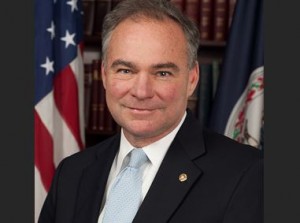
WASHINGTON, D.C. — Today, Sen. Tim Kaine (D-VA) introduced legislation in the U.S. Senate to protect LGBTQ people from discrimination in housing. A companion bill to bipartisan legislation introduced in March by Reps. Scott Taylor (R-VA) and Brad Schneider (D-IL) in the U.S. House of Representatives, the Fair and Equal Housing Act would provide consistent and explicit non-discrimination protections for LGBTQ people in housing by adding sexual orientation and gender identity as protected characteristics under the Fair Housing Act.
“In far too many places across the country, LGBTQ people are at risk of being denied housing or kicked out of their homes just because of who they are,” said HRC Government Affairs Director David Stacy. “What side of a state line you live on should not determine your ability to find a place to live without fear of discrimination. We thank Senator Tim Kaine for his continued leadership working to end unjust discrimination against LGBTQ people.”
Currently, only 20 states and the District of Columbia explicitly outlaw housing discrimination based on sexual orientation and gender identity in state law, and another two ban discrimination based on sexual orientation. This patchwork of protections leaves millions of LGBTQ people vulnerable.
LGBTQ people face significant levels of discrimination in housing. In fact, according to the 2015 U.S. Transgender Survey, nearly one quarter of transgender people reported experiencing housing discrimination. In addition, research from the U.S. Department of Housing and Urban Development shows that same-sex couples experience significant levels of discrimination when responding to advertised rental housing.
Current law prohibits discrimination based on race, color, religion, sex, disability, familial status, and national origin. In addition to adding sexual orientation and gender identity to the list of explicitly protected characteristics, the Fair and Equal Housing Act would also clarify existing law to ensure that housing protections apply to anyone who experiences discrimination because they are perceived as, or associate with, someone of a protected characteristic.











